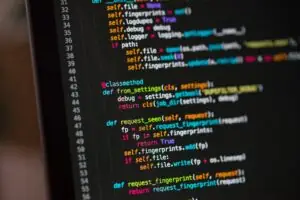Printing data to the console is a fundamental task in virtually any programming language, and C is no exception. As one of the most widely-used low-level programming languages, C offers a variety of mechanisms and techniques for printing. However, this article will focus primarily on the ‘printf’ function and its use in string and number printing.
An Introduction to the ‘printf’ Function
The print function, often used to print double in C, is one of the most commonly utilized functions for printing. It resides in the ‘stdio.h’ header file, and it’s instrumental for outputting data to the standard output, which is typically your computer screen.
The printf function possesses a flexible syntax that allows for the formatting and printing of various data types. These include integers, floating-point numbers, characters, strings, and more. But for now, let’s focus on its usage in string printing, as working with strings is a foundational skill in C programming.
Understanding Strings in C
Before delving into string printing, it is crucial to understand what constitutes a string in C. In essence, a string is a sequence of characters stored in a character array and terminated by a null character (represented as ‘\0’). A string literal, on the other hand, is a sequence of characters enclosed within double quotes. When you define a string literal in C, the compiler automatically appends a null character at the end.
Here’s an example of a string literal:
char greeting[] = "Hello, world!";
In the example above, ‘greeting’ is an array of characters. The string “Hello, world!” is stored in this array, and a null character is automatically added at the end.
Printing a String in C
Having understood what a string is in C, the next logical step is learning how to print a string. As mentioned earlier, the ‘printf’ function is your go-to tool for this task. The following code snippet demonstrates how to print the ‘greeting’ string we defined earlier:
printf("%s", greeting);
In the printf function above, “%s” is a format specifier that tells the function you want to print a string. The variable ‘greeting’ contains the string to be printed.
Advanced String Printing Techniques in C
C language offers more advanced techniques for string printing, which allow you to exercise greater control over the formatting of your output.
Looping in C to Print a String
If you wanted to print each character of a string on a new line, you could employ a loop. In C programming, you have several loop constructs to choose from, such as the ‘for’ loop, the ‘while’ loop, and the ‘do-while’ loop. The example below uses a ‘for’ loop to print each character in the ‘greeting’ string:
for (int i = 0; greeting[i] != 'for (int i = 0; greeting[i] != '\0'; i++) {
printf("%c\n", greeting[i]);
}
'; i++) {
printf("%c\n", greeting[i]);
}
In this code snippet, the ‘for’ loop traverses the string until it encounters the null character, printing each character on a new line.
Using Recursion to Print a String in C
Recursion is another advanced technique in C that can be used to print strings. A recursive function is one that calls itself until a specified condition is met. Here is an example of how to print a string in reverse order using recursion:
void printReverse(char* str) {
if (*str) {
printReverse(str + 1);
printf("%c", *str);
}
}
int main() {
char str[] = "Hello, world!";
printReverse(str);
return 0;
}
In the ‘printReverse’ function above, the recursion continues until the function encounters a null character, signaling the end of the string. The function then prints each character in reverse order.
Printing Numbers with Decimal Places in C
Aside from strings, the printf function can also handle various number formats. To print numbers with decimal places in C, we use the “%f” format specifier, as shown below:
float number = 23.45678;
printf("The number is %.2f", number);
The “%.2f” format specifier in the printf function indicates that the floating-point number should be printed with two digits after the decimal point.
Printing Multiple Variables in a Single Line in C
The printf function can print multiple variables of different data types in a single line. This is accomplished by including multiple format specifiers in the format string. Consider the following example:
int age = 25;
char name[] = "John Doe";
printf("Name: %s, Age: %d", name, age);
In the printf function above, the “%s” format specifier is used for the ‘name’ string, and the “%d” format specifier is used for the ‘age’ integer.
Conclusion
The art of printing in C encompasses a wide range of techniques, from simple string and number printing to more complex practices involving loops and recursion. The printf function, thanks to its versatile syntax and wide range of format specifiers, is a vital tool in the arsenal of any C programmer. As you delve deeper into C programming, your grasp of these printing techniques will undoubtedly grow, enabling you to tackle more complex tasks with ease.
FAQ
What is the syntax for printing in C?
The syntax for printing in C involves using the ‘printf’ function, which is structured as follows: printf("format string", variable_list);. The format string can contain text, escape sequences like \n for a new line, and format specifiers like %s for strings, %d for integers, and %f for floating-point numbers.
How do I print a string in C?
To print a string in C, you use the ‘printf’ function with the “%s” format specifier. For example, printf("%s", string_variable); would print the string contained in ‘string_variable’.
Can I print special characters in C?
Yes, special characters can be printed in C using escape sequences. For example, printf("\n"); prints a newline, printf("\t"); prints a tab, and printf("\\"); prints a backslash.
How do I print numbers with decimal places in C?
To print numbers with decimal places in C, you use the ‘printf’ function with the “%f” format specifier. For instance, printf("%.2f", float_variable); would print the float contained in ‘float_variable’ to two decimal places.
How can I print multiple variables in a single line in C?
You can print multiple variables in a single line in C by including multiple format specifiers in your ‘printf’ function. For example, printf("Name: %s, Age: %d", name, age); would print both a string ‘name’ and an integer ‘age’ on the same line.
What are common mistakes when printing in C?
Common mistakes when printing in C include not including the ‘stdio.h’ header file, forgetting to use the correct format specifier for the data type being printed, not including the necessary arguments in the ‘printf’ function, and forgetting to terminate strings with a null character.
Follow us on Reddit for more insights and updates.





Comments (0)
Welcome to A*Help comments!
We’re all about debate and discussion at A*Help.
We value the diverse opinions of users, so you may find points of view that you don’t agree with. And that’s cool. However, there are certain things we’re not OK with: attempts to manipulate our data in any way, for example, or the posting of discriminative, offensive, hateful, or disparaging material.